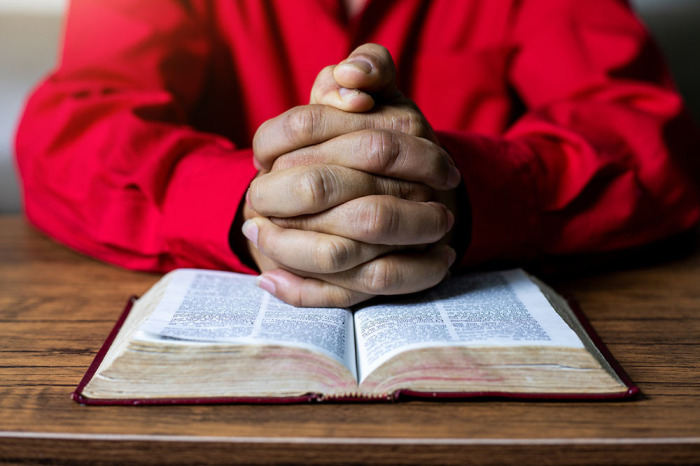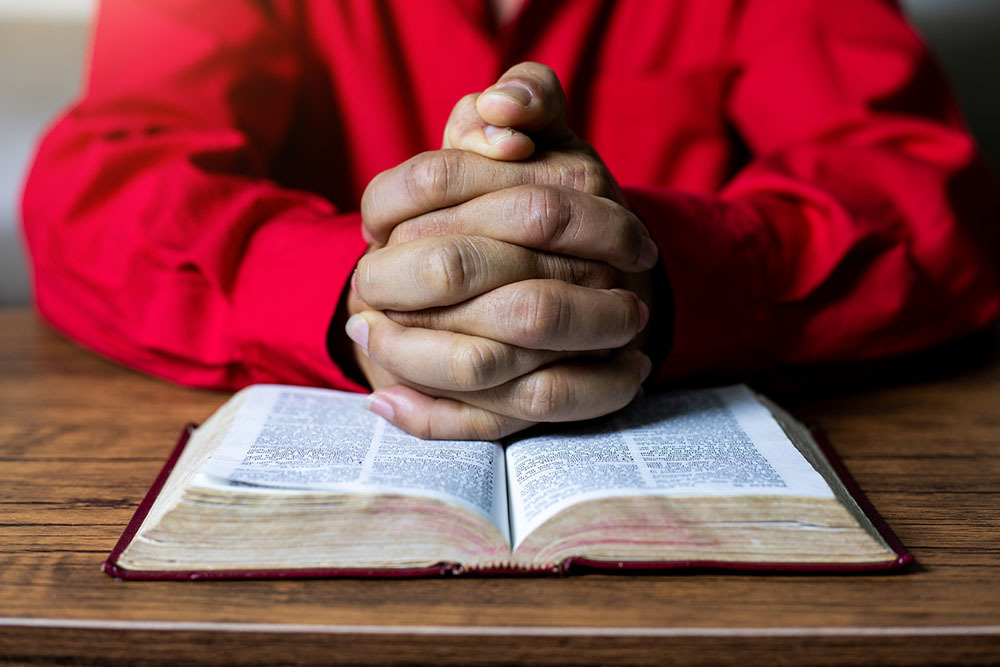
Nearly three-dozen countries have either "extreme" or "severe" restrictions on accessing the Bible, preventing millions of believers from reading God's Word, according to a new report from a Christian missions resource initiative.
The Bible Access Initiative, founded by Open Doors International and Digital Bible Society, released the findings of its "Bible Access List" on Thursday. The project examines restrictions on Bible access in 88 countries, due to issues such as persecution, high illiteracy rates, printing limitations or a lack of economic resources.
"A modern famine persists, not due to apathy, but because of barriers that prevent people from accessing the Bible," said Wybo Nicolai, the list's co-creator of BAL, in a statement provided to The Christian Post.
"These barriers differ in form, but the result is the same: millions live cut off from God's Word. Many have never seen a Bible in their language, format they prefer, or price range they can afford, or have no way to safely obtain one."
Somalia
Somalia ranked as having the worst access to the Bible, with the Muslim-majority East African country having "extreme access restrictions" due to legal persecution, threats of violence and limited economic resources.
"Bible access in Somalia is not just limited; it is outlawed. Under a strict interpretation of Sharia law, it is illegal to print, import, store, or distribute Bibles," explained the BAL profile on Somalia.
"Beyond legal restrictions, Somalia's deep poverty compounds the crisis. With more than 70% of the population living in poverty and widespread food insecurity following years of drought and conflict, basic needs often eclipse the possibility of purchasing a Bible—even if it were possible."
Overall, Somalia ranks as having the second-worst atmosphere for Christian persecution on the annual Open Doors World Watch List, citing the presence of the Islamic extremist group Al-Shabaab and abuse from family members.
Afghanistan
Afghanistan, which has been under Taliban rule since 2021, was ranked the second worst for Bible access. With a population of 43 million, the Christian community in Afghanistan comprises about .02% of the population, most of whom are converts from Islam who face severe persecution. All forms of Bible printing or importing are illegal and digital access is forbidden.
"Access to Bibles in Afghanistan is not merely limited, it is nearly impossible," the report states. "Experts estimate that fewer than one-third of Afghan Christians have any access to Scripture."
"The Taliban's return to power in 2021 has only tightened restrictions, enforcing a harsher interpretation of Islamic law and actively monitoring online activity," the report adds. "As a result, even reading the Bible on a mobile phone is widely considered unsafe. The risk is not theoretical. Muslim Background believers or MBBs often face pressure from their own families, communities, and local authorities. Exposure can lead to forced marriage, imprisonment, or execution."
Yemen
Yemen ranked third on the list. In a nation with 35 million people, the Christian community is "barely visible," the report states, adding that fewer than a third of the estimated 17,000 Christians have access to a Bible under Yemen's Sharia-based legal system.
"Any perceived effort to share the Christian faith is considered blasphemy or apostasy, punishable by death," the report notes.
North Korea
In North Korea, which ranks as the fourth-worst country for Bible access, the control and censorship of religion is far from a secret. Under the control of the Kim family monarchy, North Korea is consistently observed as one of the world's top persecutors of Christians and "remains one of the most spiritually isolated and hostile environments for Christians in the world," according to the list.
"In North Korea, the Bible is not just banned — it is feared," the researchers noted. "The regime sees Christianity as a threat to the personality cult surrounding Kim Jong Un and his family, a direct challenge to the state's ideological control."
Mauritania
The Islamic Republic of Mauritania, located in North Africa, placed fifth on the list. With a population of around 5 million, only 11,000 are Christians, with less than 40% having access to a Bible because of severe restrictions.
The country's policies prohibit the printing, importation, distribution and display of Christian materials, and possessing multiple copies "can result in prosecution, with charges that, in some cases, carry the death penalty for proselytism or apostasy."
"The government's firm stance is rooted in Mauritania's constitutional identity as an Islamic state," the report explains. "Apostasy is a criminal offense punishable by death. Even online access is closely monitored; while nearly half of the country has internet connectivity, the risk of being linked to online Christian activity can carry severe, life-altering consequences."
Eritrea
Coming in at No. 6 on the Bible Access List is Eritrea, which has become known as the "North Korea of Africa" because of its authoritarian policies and crackdowns on religious freedom that are among the most severe in the world. Although almost half of the country identifies as Christians (1.7 million), researchers report that estimates show that not even 40% of Christians have access to a Bible because of restrictions.
The report notes that "government control permeates nearly every aspect of religious life."
"Bible ownership, distribution, and even private reading are severely restricted under Eritrean law. While Orthodox and Catholic Christians (who make up about 95% of the Christian population) may encounter slightly fewer obstacles, their access remains tightly monitored," the report states. "For Protestant house churches and Muslim Background believers or MBBs, the situation is drastically worse."
Libya, Algeria, Iran and Turkmenistan rounded out the top-10 worst countries for Bible access. In total, the report identified 15 countries as having "extreme restrictions." For the category just below that, known as "severe restrictions," the report listed 18 nations.
Bhutan topped the list of countries with "severe restrictions" on Bible access and was ranked 16th overall, with the report citing "stringent religious restrictions" and a literacy rate of only 70% as factors.
Other nations listed as having "severe restrictions" on the Bible included Saudi Arabia (No. 18), Pakistan (No. 20), China (No. 25), Azerbaijan (No. 30) and Kuwait (No. 32).
Armenia, which was the first nation to adopt Christianity as a state religion in the fourth century, is ranked 87th on the list. With 95% of the population identifying as Christians, there are no restrictions on owning or distributing Bibles in Armenia. However, a "quiet crisis of Bible scarcity" has arisen through "economic hardship, a shrinking church infrastructure, and outdated or limited distribution networks," the researchers report.
"Even in a country where Christianity is culturally dominant, the actual ability to read and engage with God’s Word remains limited for most," the report states.
Ranked at the bottom of the list at 88 was Brazil, a majority-Christian South American country that, according to researchers, struggles with Bible access in certain areas of the nation due to "extreme poverty."
"Even when Bibles are available for purchase, many families are forced to prioritize food and shelter over spiritual resources," stated Brazil's profile. "To make matters worse, high taxation and corruption drive up the costs of printed materials, including Bibles."
In addition to Open Doors and DBS, the 2025 report included the participation of partners, namely Frontlines International, Bible League International, Biblica, Bible League Canada and OneHope.
News Source : https://www.christianpost.com/news/33-countries-have-extreme-or-severe-restrictions-on-the-bible.html
 Your post is being uploaded. Please don't close or refresh the page.
Your post is being uploaded. Please don't close or refresh the page.





